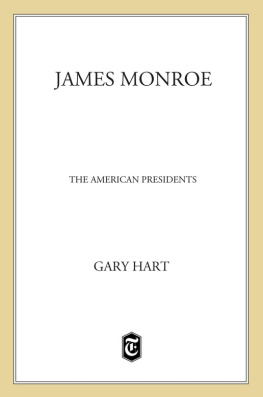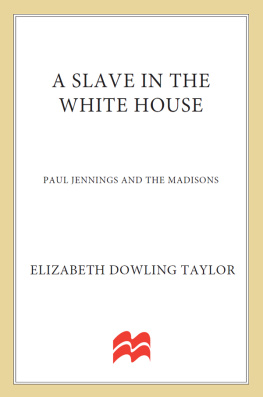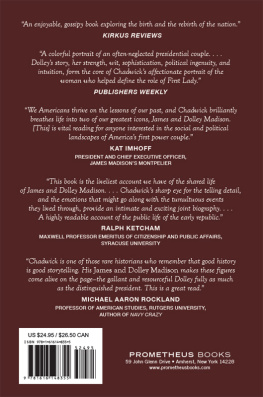Thank you for downloading this Simon & Schuster eBook.
Join our mailing list and get updates on new releases, deals, bonus content and other great books from Simon & Schuster.
C LICK H ERE T O S IGN U P
or visit us online to sign up at
eBookNews.SimonandSchuster.com
We hope you enjoyed reading this Simon & Schuster eBook.
Join our mailing list and get updates on new releases, deals, bonus content and other great books from Simon & Schuster.
C LICK H ERE T O S IGN U P
or visit us online to sign up at
eBookNews.SimonandSchuster.com
ALSO BY DAVID O. STEWART
The Lincoln Deception (fiction)
American Emperor: Aaron Burrs Challenge to Jeffersons America
Impeached: The Trial of President Andrew Johnson and the Fight for Lincolns Legacy
The Summer of 1787: The Men Who Invented the Constitution

Simon & Schuster
1230 Avenue of the Americas
New York, NY 10020
www.SimonandSchuster.com
Copyright 2015 by David O. Stewart
All rights reserved, including the right to reproduce this book or portions thereof in any form whatsoever. For information address Simon & Schuster Subsidiary Rights Department, 1230 Avenue of the Americas, New York, NY 10020.
First Simon & Schuster hardcover edition February 2015
SIMON & SCHUSTER and colophon are registered trademarks of Simon & Schuster, Inc.
The Simon & Schuster Speakers Bureau can bring authors to your live event. For more information or to book an event contact the Simon & Schuster Speakers Bureau at 1-866-248-3049 or visit our website at www.simonspeakers.com.
Interior design by Akasha Archer
Jacket Design by Anderson Newton Design
Jacket Image Credits:
James Madison: Roger-Viollet / the Image Works
George Washington: Sterling and Francine Clark Art Institute / Bridgeman Images
Alexander Hamilton: Collection of the New-York Historical Society, USA / Bridgeman Images
Thomas Jefferson: Peter Newark American Pictures / Bridgeman Images
Dolley Madison: Collection of the New-York Historical Society, USA / Bridgeman Images
James Monroe: Collection of the New-York Historical Society, USA / Bridgeman Images
Library of Congress Cataloging-in-Publication Data
Stewart, David O.
Madisons gift : five partnerships that built America / David O. Stewart.
pages cm
Includes bibliographical references and index.
1. Madison, James, 17511836. 2. Madison, James, 17511836Friends and associates. 3. Madison, James, 17511836Marriage. 4. Madison, James, 17511836Influence. 5. PresidentsUnited StatesBiography. 6. StatesmenUnited StatesBiography. 7. FriendshipPolitical aspectsUnited StatesHistory. 8. United StatesPolitics and government17751783. 9. United StatesPolitics and government17831865. I. Title.
E342.S74 2015
973.5'1092dc23
[B]
2014021393
ISBN 978-1-4516-8858-0
ISBN 978-1-4516-8860-3 (ebook)
CONTENTS
To Nancy
1

T HE E ND OF THE B EGINNING
T he great news reached Philadelphia in November of 1783, when James Madison was packing for home. Britain had signed a peace treaty that recognized American independence, redeeming eight years of bitter sacrifices by the American rebels. They had defeated the most powerful nation on earth and won the right to govern themselves.
Madison and his three million countrymen faced fundamental questions. Could the thirteen states remain united across fifteen hundred miles of Atlantic coast and almost as far into the western forests? Could they maintain a republic in a world of monarchies? Could they avoid anarchy at one extreme and autocratic rule at the other?
The thirty-two-year-old Madison, who was finishing four years as a Virginia delegate to Congress, faced questions of his own. After a spell of ill health and aimlessness as a wealthy graduate of the College of New Jersey (now Princeton), he had found purpose in the Revolution. A month with his county militia in 1775 established that the bookish Virginian was a poor candidate for soldiering. He not only was short and slightno taller than five feet six inches and a bit over one hundred poundsbut also suffered from chronic intestinal woes and fits that resembled epilepsy. He put down his musket and applied his revolutionary ardor to politics. After serving in Virginias provisional government, Madison went to Congress in 1779, still only twenty-eight. Through hard work and talent, he became a central figure in a legislative body crowded with the second-raters.
The past year had been a turbulent one. Madison had lost his heart to Kitty Floyd, the fifteen-year-old daughter of a New York delegate who lived in the same Philadelphia boardinghouse as Madison. He had hoped to marry Kitty and had courted her assiduously. In late April, when the Floyd family journeyed to New Jersey, the infatuated Madison rode sixty miles with them, then returned to Philadelphia.
Madisons public life had also brought disappointments. The new nation could not pay its bills, starting with huge debts to France and to its own citizens. The government created by the Articles of Confederation could impose taxes only with the consent of all thirteen states. Because no tax ever commanded such unanimous support, Congress had to ask the states, politely, to send money to pay for the war, and now for the peace. Voluntary state payments always fell below what was needed, so Congress gasped along on whatever came to hand.
The lack of money ignited a crisis in the winter of 1783. Unpaid soldiers, camped on the Hudson River above New York City, grumbled about mutiny. A delegation of officers carried a petition to Congress in Philadelphia, demanding their back pay. In late February, Madison joined five congressional delegates in a dramatic evening session with the disgruntled soldiers. By the flickering firelight, delegate Alexander Hamilton of New York made dark pronouncements. A former army officer himself, Hamilton warned that some officers aimed to oust George Washington as commander and to remain in arms until they were paid.
Congress made more promises to the soldiers, as did state officials, but they were empty ones. There was no money. It was a recipe for insurrection: an army with no enemy to fight and real grievances against its own government.
In Congress, Madison urged the fractious states to agree on a national tax that would pay the nations soldiers and its debts. Without such action, he predicted, a dissolution of the Union would be inevitable; the southern states would go one way, New England another, the middle states a third, each seeking alliances with European powers. Congress appointed Madison to a committee charged with developing a fiscal solution.
While Congress dithered, one man prevented mutiny. General Washington called an assembly of officers for March 15, the ides of March. For those who knew their Shakespeare, it must have seemed a portentous date.
Standing before his brother officers, Washington recalled sacrifices shared through battle and privation, misery and loss. This was not the time, he said, to open the floodgates of civil discord and deluge our rising empire in blood. It was not his prepared statement, but a theatrical aside, that carried the day. When he began to read a letter aloud, Washington stumbled over the words, then donned a pair of spectacles. Gentlemen, he said. You must pardon me. I have grown gray in your service and now find myself growing blind. Some wept. Most were ashamed. All were moved. The mutiny dissolved with a unanimous resolution supporting Washington.
Next page








